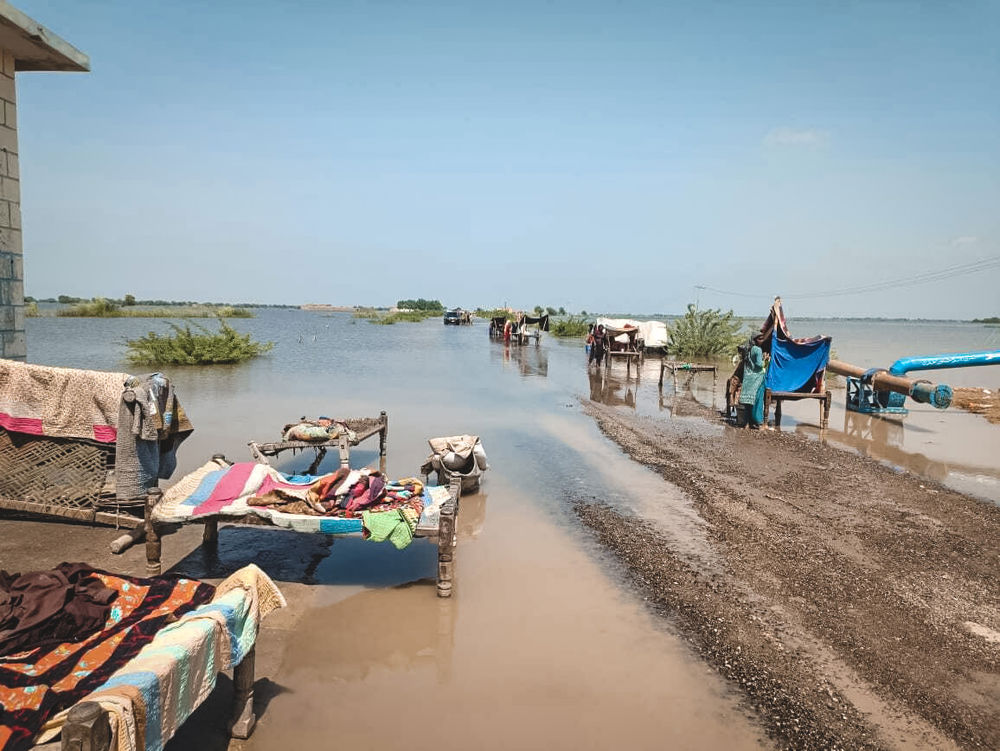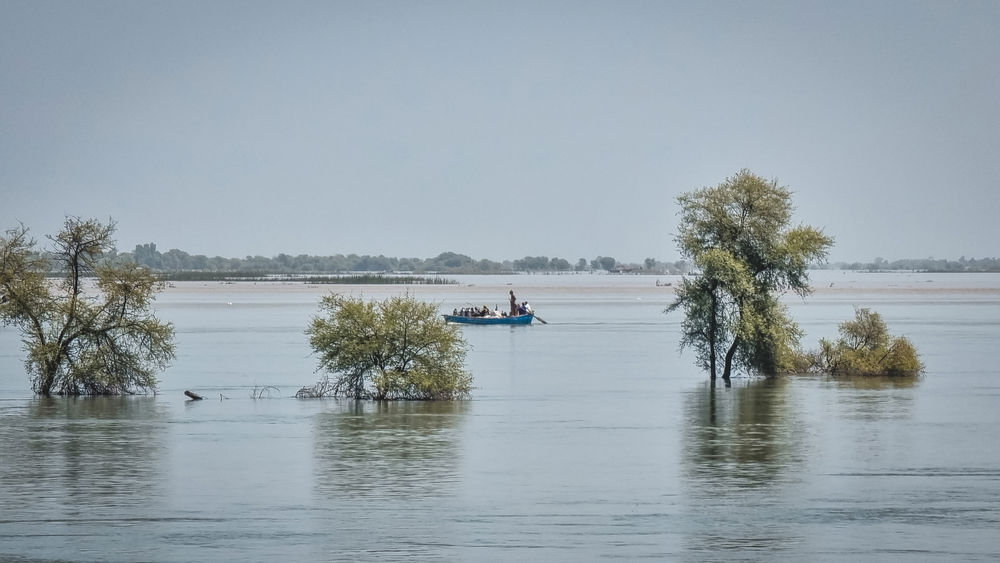Three project teams are providing the first emergency care to flood-affected vulnerable communities in Balochistan. MSF teams based in Dera Murad Jamali (DMJ) decided to respond to the emergency needs by providing medical health care, clean drinking water and distribution of NFIs starting on August 20t, 2022. Since the declaration of a state of emergency, teams have started two mobile clinics in DMJ and provided outpatient consultations to 2,575 patients with fever, skin diseases, diarrhea, skin and eye infections. They have distributed over 400 hygiene kits and mosquito nets. Health promotion activities are also conducted by the teams and referrals are directed to District Headquarters hospital.
In Chaman, over 450 consultations were conducted in Killi Sui Karez and Killi Taikadar, and 130 non-food items (NFIs) were distributed in Killi Sui Karez. In Quetta, over 800 consultations have been provided to patients with respiratory infections and acute watery diarrhoea. 84,000 liters of water have been distributed on Western Bypass ring road, 385 NFIs have been provided to over 300 families. The figures are as of September 3, 2022.
MSF mobile team started distributing NFIs and safe drinking water and providing primary health care and referral to the flood-affected families in Quetta’s Eastern Bypass ring road. Many of these people are Afghan refugees. MSF is assessing and planning more supports to the population in the provincial capital’s suburb.
Other areas, including Sindh province near Sukkur city, are being assessed, but the team did not wait to provide safe drinking water and basic non-food items like plastic sheets for some families who didn’t have any shelters. More aid will be delivered in the coming days, and we are establishing a base in Sukkur. In East Balochistan, we are starting water supply and mobile clinic in Manjhoo Shori, Usta Muhammad, Sohbatpur and the neighboring areas which are suffering most from the floods. Hygiene items such as soap bars will be distributed.
We have also started an intervention with a mobile clinic in the Dadu district of Sindh, providing primary medical care to the population affected by floods. Our medical teams are treating 120 to 150 patients daily for skin diseases, diarrhea, and psychological distress. A big surge of acute water diarrhea (AWD) is expected in the coming weeks.
MSF is planning to launch an intervention in Nowshera and Charsada in Khyber Pakhtunkhwa province and in South Punjab soon. The waterbeds in the areas of Nowshera and Charsadda are contaminated and there is a high risk of water-borne diseases. The stagnant water is also leading to an increased risk of dengue and malaria cases. The flood has washed away the house items, mud walls and the latrines are damaged. We will focus on providing primary health services, hygiene kits, health promotion activities and mosquito nets, while supporting the health authorities with the surveillance and preparedness to potential outbreaks.
At least 33 million people have been affected by the floods. Most of those who lost their homes are now living in tents on the banks of overflowing canals and rivers. The floodwater they may drink is contaminated. Toilets have been destroyed or are filled with mud making them unusable, and floodwater is stagnant. All this will have consequences for people’s health.
Pakistani health officials have reported waterborne diseases in areas where thousands of people are affected by the disaster. In the aftermath of floods, a rise in diseases like diarrhea, cholera, dengue, malaria, skin and eye infections can be anticipated, along with mental health issues. The World Health Organisation (WHO) has announced an increased surveillance for acute diarrhea, cholera and other communicable diseases. The waterborne diseases continue to spread, especially in Balochistan, as almost all water resources were badly affected since June 2022. MSF is also monitoring the situation and planning how to intervene as needed.



